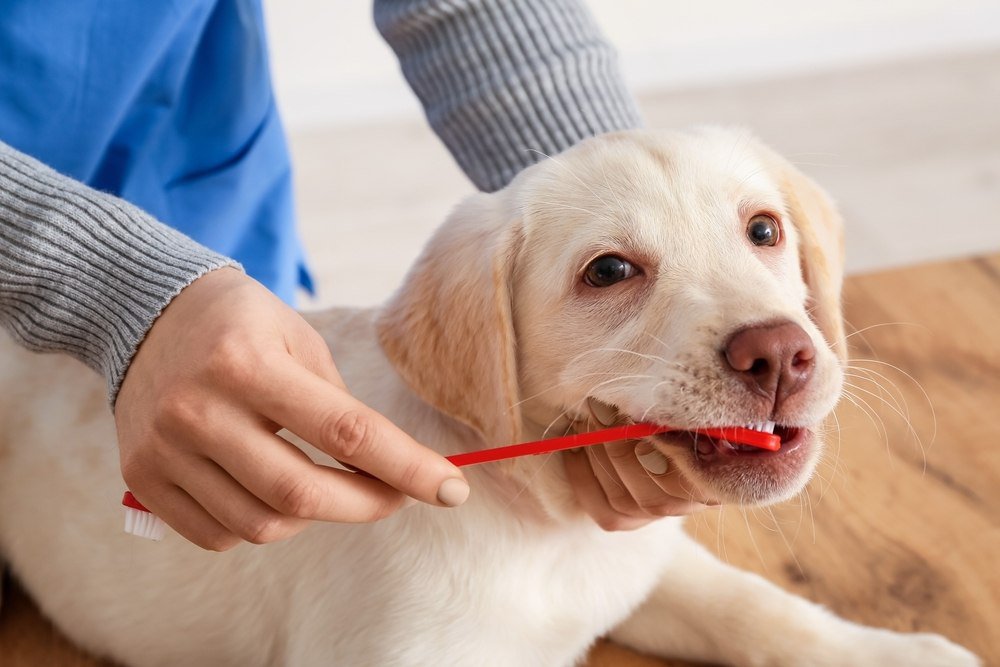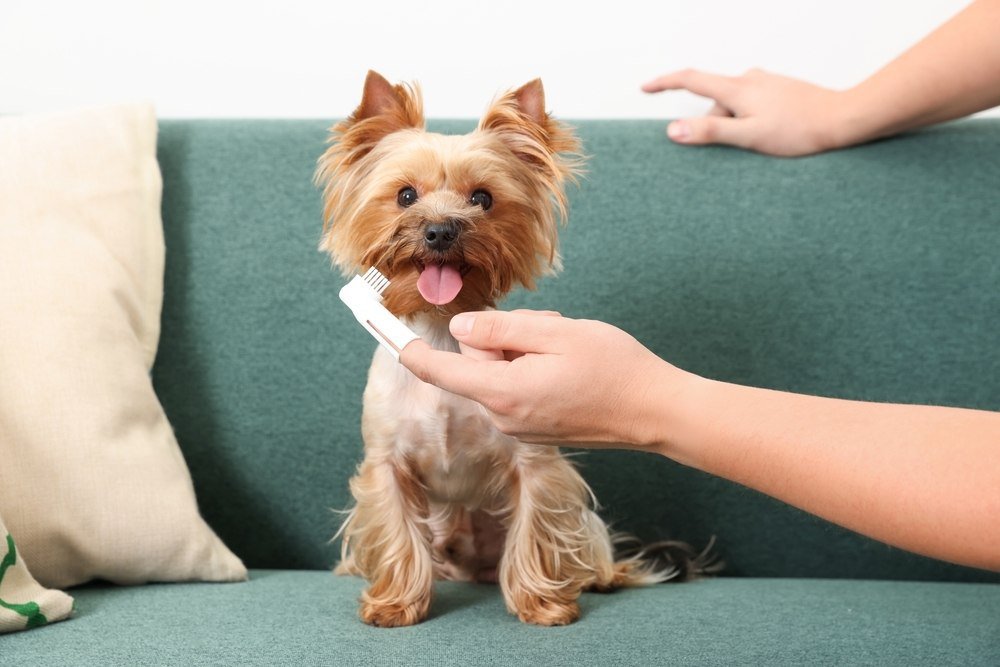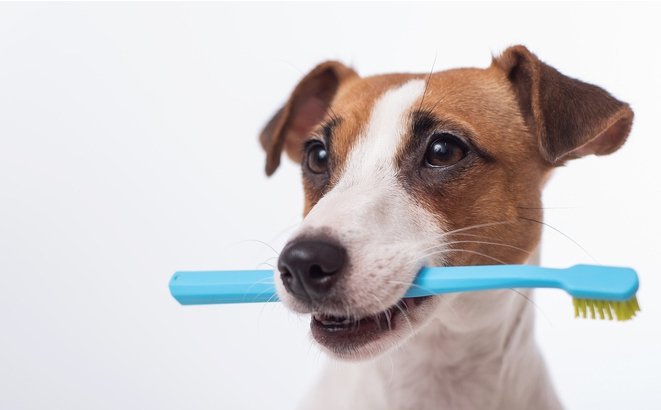National Pet Dental Health Month
National Pet Dental Health Month
February is National Pet Dental Health Month, making it the perfect time to brush up on the importance of canine dental health! A dog’s dental health can impact more than just their breath. If left untreated, canine periodontal disease can lead to serious health problems for our furry friends, such as chronic pain and tooth loss. The good news is periodontal disease is often preventable. With proper care, like regular dental checkups and routine tooth brushing, you can help keep your canine companion’s teeth in tip-top shape all year long.
What is Canine Periodontal Disease?

Periodontal disease is caused by a buildup of dental plaque and tartar on the teeth, resulting in inflammation. This can affect a dog's teeth, gums, and bones. If left untreated, periodontal disease can lead to tooth loss, pain, infections, and other serious issues.
By the age of three, over 80% of dogs have signs of canine periodontal disease. One of the first signs of canine periodontal disease is bad breath, which can go unnoticed by pet parents who assume this stinky situation is just "dog breath". In addition to bad breath, some other early signs include yellow tartar buildup on a dog's teeth, along with red, swollen gums.
Tooth Brushing
One of the best (and often overlooked) things a pet parent can do for their new puppy is introduce them to, and get them comfortable with, tooth brushing. Prevention is the best course of action when it comes to canine periodontal disease, and regular tooth brushing can help stop plaque from building up in the first place. When choosing the right toothpaste, pick one made specifically for dogs. These kinds of toothpastes are formulated for our canine friends, ensuring they only contain pet-safe ingredients. They also come in a variety of flavors dogs love, like chicken, peanut butter, or beef.

There are a couple of different canine toothbrushes out there, such as a soft-bristled brush that fits over your finger or a dog toothbrush. Brushing a dog's teeth daily is best, but brushing them 3 times per week for around two minutes at a time should be enough to keep your dog's pearly whites and gums clean and healthy.
Tips For Tooth Brushing

When introducing your canine companion to having their teeth brushed, start by ensuring they are comfortable with having their mouths and teeth touched. You can also start giving them small amounts of their dog-friendly toothpaste so they get used to the flavor before the first tooth-brushing session. It's also best to try and brush your dog's teeth when they're calm.
Start brushing your dog's teeth in shorter increments, then build up to two minutes per session. Positive reinforcement and patience are key here - so don't forget the treats and praise along the way! Some dogs may take a bit more time to get comfortable with the idea of having their teeth brushed, while others will be fine with it very quickly.
Other Dental Cleaning Options
In addition to the trusty toothbrush, there are other dental cleaning options out there. One alternative is dental wipes for dogs. Instead of a toothbrush, you rub the wipe against your dog's teeth. Dental treats are another way to go. These are made with tooth-cleaning ingredients that help clean your dog's teeth and freshen their breath. Vets also offer professional teeth cleaning.

With frequent tooth brushing and routine dental checkups at the vet, you can help keep your dog's dental health in peak condition. Wondering which toothpaste, toothbrushes, and chews are the right ones for your canine companion? Our team at Puppyland is here to help.
